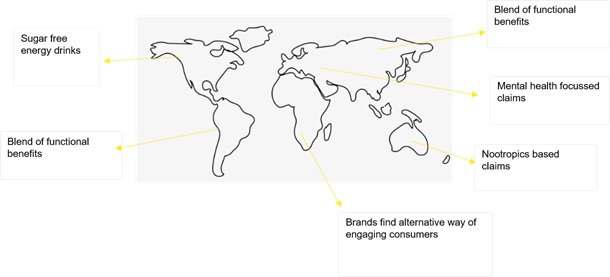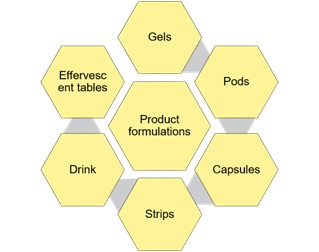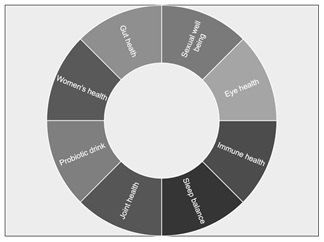Health and lifestyle have come into focus during the COVID-19 pandemic scenario. The negatively impacted lifestyle of working from home and no physical workout has resulted in mental health issues and obesity. These concerns have led people to scout for products that provide multiple health benefits without compromising on taste. The consumer’s shifting pattern towards a better lifestyle has led manufacturers and brands to provide energy drinks with multiple health benefits as per the demand. Start-ups are working to provide drinks without sugar and focus on enhancing alertness and mental clarity.
Enhancing Mental and Physical Energy
Beverages with high concentrations of legal stimulants, including guarana, taurine, and L-carnitine, are classified as energy drinks. They can be further categorized based on the carbonation in the drink. These drinks are renowned for providing physical energy and mental stimulation. The FDA has not regulated them until now due to lacking a specific category. They are marketed as dietary supplements or conventional beverages based on the ingredient and their intended use.
Energy & Sports Drinks Market Stats
The energy and sports drinks market has exciting, enormous potential for investors. According to Stellarix’s research, the combined in-home and out-of-home revenues for 2024 may amount to USD 204.5 billion. The energy and sports drinks market is slated to show a volume growth at home of 2.2% in 2025.
Major Concerns Regarding Energy Drinks
The rising demand for energy drinks among adolescents and young children is gaining worldwide attention due to their potentially harmful side effects. The over-consumption of drinks leads to health issues such as insomnia, high blood pressure, obesity, and headaches due to the high content of caffeine and sugar. Caffeine acts as a stimulant for the body. It causes jitteriness, anxiety, depression, and sleep disturbances in humans. Caffeine addiction is also causing worry among consumers. The caffeine content in popular energy drinks varies significantly as the United States Food and Drug Administration does not regulate the energy drink industry.
Alternative Solution
Chargel—Morinaga America recently announced the launch of Chargel in the U.S. Chargel provides 20% of the daily requirement value of essential vitamins, including vitamins B3, B1, B2, B12, and B6, respectively, and also gives instant energy without caffeine. These vitamins work by converting carbohydrates into fuel. Chargel offers the dual benefit of snacks and drinks. The product is currently available in three exciting flavors.
Bang Caffeine-free- This zero-calorie energy drink replaces caffeine with Super Creatine®, CoQ10, and EAAs (essential amino acids), which work as brain & body-rocking fuel. It is available in pear, cola, candy, lemonade, and vanilla flavors. As per the 2018 report, the drink was considered America’s top-growing energy drink and the No.1 overall growth beverage in the non-alcoholic industry.
Caffeine-free drinks: To address consumers’ concerns, manufacturers are looking for ways to manufacture energy drinks that provide similar energy and mood lift. Recent product analysis shows companies are replacing caffeine with natural ingredients like amino acids and coenzyme.
Sugar-free
Machu Picchu -Machu Picchu is an organic energy drink with zero sugar content. The product contains only 15 calories and has organic and clean ingredients. It is low in caffeine and sourced from green coffee beans. It also contains organic maca and B vitamins. The product has organic flavor technology, natural flavors, and no preservatives. Rowdy Energy Drink – Energy drinks with a proprietary blend of Allulose, Erythritol, Stevia, and Monk Fruit. It is the first Keto-approved drink with over 800mg of “free potassium.” Combining caffeine and L-theanine from natural sources helps to promote mental performance. The product is free from chemicals, artificial colors, preservatives, or branched-chain amino acids.
Worldwide Brands Preferences
Reports have shown that companies are trying to meet consumers’ demands by manufacturing positional claim-based drinks. European brands focus on mental claim-based energy drinks and tropical and European flavors. Flavors like mango, cactus, and watermelon have shown an unprecedented rise in consumer demand. In 2021, Red Bull released a limited-edition cactus-flavored energy drink.
Vitamin-based energy drinks rose from 56 to 64% in August 2021 in the Asia Pacific region. The annual sales in the US are slated to go past USD 21 billion by 2026. Product launches with Vitamin B6 and C are majorly driving this rise. Chinese people tend to check the vitamin content before buying a product. The American consumer is in rising demand for sugar-free drinks. The COVID-19 pandemic has forced people to stay home, leading to no active lifestyle. The increasing weight of people and its associated outcomes has led to an increase in no sugar-based claims. Powdered energy drinks have seen a significant surge in North America.

Different Formulation
Along with offering the benefits of energy drinks, brands are also focusing on different types of product formulations to provide convenience and ease to consumers. Products, including Chargel, NuStrips, Waterdrop®, and Tespo pods, are currently available in the market.

Scopes in Energy Drinks
Energy drinks are famous for providing physical and mental energy to consumers. They are mainly available with physical energy or mental health-focused claims. Targeting common health issues and manufacturing claim-focused energy drinks can offer a different scope to manufacturers. Health benefits, such as eye health, joint health, and immune functioning, can be considered areas of research.

Start-ups Working on Energy Drinks
CLEAN Cause:
CLEAN Cause is an Austin-based start-up founded in 2015. A serial entrepreneur, father, and activist founded the company. They aim to support individuals in recovery from alcohol & drug addiction. The employee strength of 40+ at CLEAN Cause targets to keep the maximum number of individuals recovering from alcohol & drug addiction. The yerba mate sparkling drink has four flavors with reduced and zero-calorie content. They received the first funding of $7 million from private individuals in Austin.
Rowdy Energy Drink
Rowdy Energy Drink is a California-based start-up focused on wellness. NASCAR Cup Champion Kyle Busch established it in 2020. The company secured funding of USD 13 Million in May 2021, which would be used in marketing. This sugar reduction in a drink combines Allulose, Erythritol, Monk Fruit, and Stevia to create the desired sensory profile. The combination of caffeine sourced from green coffee and L-theanine provides energy without jitters and promotes cognitive functions and alertness. This energy drink is available in seven different flavors in over 25,000 retail stores that can be located using a store locator.
Virtue Clean Energy
Virtue CLEAN ENERGY is a London-based start-up providing clean energy drinks without sugar and calories. Rahi Daneshmand, a London-based entrepreneur, founded it in 2016. They aim to provide clean energy power globally and protect the environment. They currently have two products, Virtue Clean Energy and Virtue Yerba Mate, retailed in over 30 countries. The company recently secured funding of £1.1m. They plan to utilize this funding for expansion in the UK secured funding. They plan to use this funding for expansion in the UK and overseas.
Conclusion
To pay attention to consumers’ rising health concerns, manufacturers can scrutinize health benefits other than physical and mental in addition to energy beverages like sports energy drinks. Studies have shown that teens require more energy than other age groups. Hence, the formulation of drinks that consider the nutrient requirements can be a scope of the study. Many more drink brands will soon include sustainability concepts in their products. Big giants, such as Symrise, are supporting Holy Energy, a start-up currently working on translating the market trend toward natural flavors into a trendy, sustainable energy drink.